Adult Social Work
About this Priority Setting Partnership
The Adult Social Work Priority Setting Partnership worked to find out what research needs to happen in future to make social work with adults in England even better. To do that they made a survey at the end of 2017 to ask people for their comments and questions about adult social work in England and arranged a workshop where people who use adult social work services, their carers, and social work practitioners agreed on which questions were the most important in their experience.
The Adult Social Work PSP Top 10 was published in November 2018.
December 2017 news from Lyn Romeo, former Chief Social Worker for Adults in England, about why it was important to complete the original survey
Partners helping us to raise awareness of the PSP:
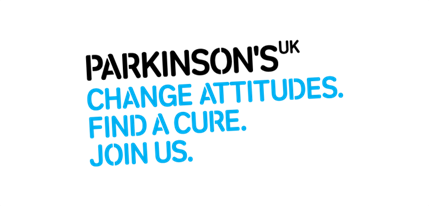




Further information
Impact of Top 10s
How did we do it

We wanted to find out the unanswered questions about adult social work in England so that people can do research to help answer the questions.
To find these questions, the PSP asked people to complete a survey saying what their comments and questions about adult social work are. This survey closed in January 2018. We heard from nearly 500 people including those with care and support needs, their carers, social workers and other professionals who work with or alongside them. They told us about their experiences and their priorities for future social work research.
Following careful analysis of every survey response, a list of potential questions for research was developed. Questions were checked against existing research evidence to make sure that they were not already answered.
We then asked people to choose the questions from the list that they thought were the most important in their experience. We heard from lots of people affected by social work.
We held a workshop to discuss and agree the final order of priority of the questions in July 2018. Social workers and the members of the public they work with were at the workshop. This meant that when we agreed the most important questions, they were what social workers and people who need their help really wanted to see researched.
We are promoting the final list of the most important questions to researchers and the people who fund research. They will then know what it is most important to research.
The survey

What are the most important questions for future research to answer?
We recently asked people to tell us their comments and questions about adult social work in a survey. We did this because we want to find out what research needs to happen to improve social work. Thank you to everyone who sent in comments and questions. We had almost 500 responses to this first survey.
We made a list of the questions that came from the original survey and asked people to vote on the most important ones in their experience. That voting survey closed on 1st July 2018.
The Top 10 most important future research questions as agreed by people who use adult social work services are now available.
What social workers do

Social workers provide vital services to children, adults, families and communities.
Social workers help people find solutions to social and practical problems, access care and support, be safe from harm or neglect, exercise their human rights and get on with the lives they want to lead as much as possible.
For social workers working with adults, this involves working with people, families and communities across a wide range of fields of practice, such as mental health, physical and learning disabilities, child protection, child and family support, conditions of older age, end of life care and physical illnesses.
Who was involved
We had a Steering Group, which is the group of people who managed the Adult Social Work Priority Setting Partnership.
These members of the Steering Group represent people who have a social worker or have been in contact with social workers in England
John Bridle

John is a former college lecturer in Business and Management whose specialism was Marketing. He is Vice Chair of his local GP practice Patient Participation Group and represents Healthwatch Kent on the Ashford Health and Wellbeing Board, itself a sub-committee of the Kent Health and Wellbeing Board.
He is currently actively seeking an improvement in rheumatology care for patients in Ashford. John is also Chair of the Kent Countryside Access Forum, a Statutory Body charged with advising local authorities and others of their responsibilities for access for all, being firmly committed to the belief that access to the countryside generally has a tremendous beneficial effect upon the wellbeing of all sections of society but especially for those who have physical and mental health issues.
Since becoming a carer for his wife, who has multiple long-term conditions, he has become a Trustee of Carers’ Support, Ashford, Shepway and Swale. They provide a range of services supporting Carers many of whom do not readily recognise that they are Carers but who may have very specific health and social needs of their own. He has attended various forums where he has spoken of the various needs of Carers and pleaded for broader recognition that those needs differ greatly and are not single dimensional. John feels that the PSP Steering Group offers an interesting opportunity to put forward this view and hopes that his contribution proves useful.
Ally Khodabocus

Ally is the main carer for his son Bashir (23), born with Mosaic Down Syndrome and ASD. He is a volunteer ambassador for CarersUK and is employed as a Visitor Advisor for Transport for London. He is Comms Chair for Transport for London Carer Staff Network Group and organiser of a parent support group “UpsideofDown” in Newham, London. He is a member of various national organisations with a link to disability and advocacy.
Ally has taken part in various research projects for Mind, Mencap and the Department of Health’s recent work on Social Workers. He is a winner of the charity “CEREBRA” Parents Award of the year 2011.
Sally Ferguson-Wormley
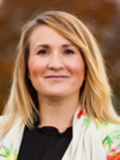
Sally is the Principal Officer for Inclusion at Speakup. She is also studying for a PhD in Digital Inclusion and Learning Disability at Manchester Metropolitan University. Sally has worked in the field of self-advocacy for the last 16 years, supporting people with learning disabilities and/or autism to have their say in local, regional and national policy. Sally has practice assessed over 50 social work students working closely with the Universities of Sheffield, Sheffield Hallam and Huddersfield.
Sally sits on the Yorkshire and Humber Steering Group for LeDeR and supports the Rotherham, Doncaster, Sheffield and North Lincolnshire Transforming Care Partnerships.
Alison Owen
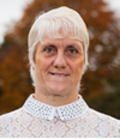
Alison Owen sits on the National Co-production Advisory Group for Think Local Act Personal she also works for a self advocacy group called Speakup in Yorkshire. In 2016 Alison won the National Learning Disability and Autism Award for Making a Difference. Alison was the National Forum Representative for the Yorkshire and Humber region until 2016.
Alison represents the voice of people with learning disabilities and local, regional and national meetings and is passionate about co-production.
These members of the Steering Group represent or support people who are social workers
Peter Feldon
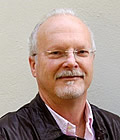
Peter is a freelance consultant and trainer specialising in the Care Act. He has a background of working in social care as a social worker, trainer, manager and policy developer. His particular interest is in the role of social workers in applying professional judgements and ethical practice in the context of legal rules. He is the author of “The Social Worker’s Guide to the Care Act 2014."
Suzanne Barnett
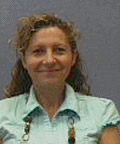
Suzanne is currently in a seconded position from Stoke-on-Trent Local Authority into a post as a Learning and Research Associate with the West Midlands Social Work Teaching Partnership (WMSWTP). The partnership is a collaboration of nine Local Authorities with Birmingham City Council as lead authority and the University of Birmingham as HEI (Higher Education Lead). The role of the Learning and Research Associate seeks to bridge academia and practice. She is currently involved in key work streams on the implementation plan and completing a mini research project.
Suzanne is a Senior Social Worker from Adult Services in Stoke, with 20 years of experience of both Children and Adult services in Stoke-on-Trent. She agreed to join the Steering Group for the Priority Setting Partnership in Adult Social Work to represent the British Association of Social Workers and the WMSWTP. Suzanne is committed to embracing the strategic vision to change organisational cultures through investment at all levels to strengthen social work and strengthen leadership.
Pam Abbott
Pam works for Framework Housing Association, a voluntary sector organisation that works primarily with homeless and vulnerably housed people. She is a Registered Social Worker and Practice Educator 2 and her current role is as the lead and developer on Framework’s ASYE program, which is now coming up to its 5th year. She is also a practice trainer and delivers training to Framework’s staff.
Karen Cook
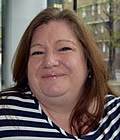
Karen is the vice chair of the Adult Principal Social Work Network and the Head of Social Work and Social Care at Central and North West London NHS Foundation Trust. She has been a qualified social worker since 1994 and works primarily in the field of mental health.
Elaine James
Elaine is Head of Adult Social Care Policy and Strategy for Bradford Council. She has over 25 years experience in the field of health and social care working across voluntary and statutory sectors.
Avital Petel-Tzuck
Avital is a Senior Social Worker who works as part of the Community Support and Social Work Service (CSSW) in Jewish Care. She works with clients, their families and professionals in the wider community to enable people to improve their wellbeing and to feel part of the community. Her other roles are as a Senior Advisor on the Jewish Care Helpline and a Learning and Development Coordinator for the CSSW.
These members of the Steering Group represent people who are researchers
Jill Manthorpe
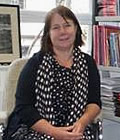
Jill is Professor of Social Work and Director of the Social Care Workforce Research Unit at King’s College London. The Unit conducts research into social work and care for the Department of Health and other funders. She is Emeritus Senior Investigator of the National Institute of Health Research; a visiting professor at the University of Melbourne, University of Singapore and Ulster University.
Lisa Smith

Lisa is the Assistant Director of Research in Practice for Adults. She is experienced in service redesign and development, having worked as a commissioner.
Lisa has a background in research having worked for a number of years at the University of Bath in the Mental Health Research and Development Unit as both a researcher and a research governance facilitator.
Mike Clark
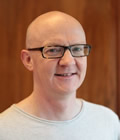
Mike is the Research Programme Manager for the National Institute for Health Research School for Social Care Research. In this capacity he pursues developing stronger links between research and social care practice and the lived experiences of people using services and carers. He is an active researcher in the Personal Social Services Research Unit at the London School of Economics and Political Science, and editor of the new Journal of Long-Term Care.
Sam Baron
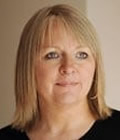
Samantha (Sam) Baron is an acknowledged system-wide leading figure in social work education and a Professor of Social Work. As the current elected Chair of the Joint University Council Social Work Education Committee (JUC-SWEC), she frequently represents social work education at governmental level and is regularly consulted and asked to lead and participate in working groups defining standards for social work education. She has worked in higher education for over 25 years and has practised as a mental health social worker and manager within a local authority.
These members of the Steering Group will help to run it
Katherine Cowan
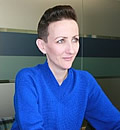
Katherine is Senior Adviser to the JLA and has been a key contributor to the development of its methods and profile since 2008. Katherine co-wrote and edited the original JLA Guidebook. She has chaired over 20 PSPs and facilitated at more than 30 priority setting workshops. She is passionate about the JLA method and its potential to bring disparate and often seldom-heard groups together to influence the research agenda.
Katherine’s professional background is in social research and she has a particular interest in public participation and inclusion.
Caroline Whiting
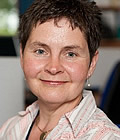
Caroline is a Research Manager for the James Lind Alliance (JLA) at the National Institute for Health Research Evaluation Trials and Studies Coordinating Centre (NETSCC) based at the University of Southampton. In her work with the JLA, she handles enquiries from people wanting to start new PSPs, supports JLA communications, facilitates workshops to allow patients, carers and health professionals to work together to agree research priorities, and works closely with the rest of the JLA team.
Lyn Romeo
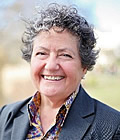
Lyn took up her post as Chief Social Worker for Adults in September 2013. Previously, Lyn worked as the Assistant Director for Adult Social Care in the London Borough of Camden. She has also worked as an inspector with the Social Services Inspectorate and in frontline and management roles across children and adults services.
Katie Weeks
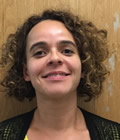
Katie is a civil servant in the Department of Health where she has worked since 2013 as policy manager to the Chief Social Worker for Adults. Before that, she worked in in various policy roles in the Department for Communities and Local Government (DCLG).
Kristina Staley

Kristina has been working in the field of public involvement in health and social care research for 20 years. She is the Director of TwoCan Associates, a small consultancy firm specialising in researching involvement and developing policy and practice. She has worked as an Information Specialist on a range of JLA PSPs. She will help us to gather together the survey responses to find out what unanswered research questions are most important to everyone.
Why did we do this

When social workers work with adults, we sometimes don't know what works best or why one approach is more successful than others. We call this ‘having an unanswered question’. Research can help to answer these questions so that we know what works best and can make social work even better.
We wanted to help make sure that research answers the questions that matter to you.
We wanted to understand what works best for different people, including people living with mental health problems, with learning disabilities, physical disabilities and for older people.
“It is really important to do research with social workers and people who have been in contact with social workers about the services they provide, so that social workers can develop their learning and skills further. This will remove barriers people face and make sure that services work well and are equal for all.”
The Chief Social Worker for Adults in the Department of Health set up this project, following the 2016 report: “Social Work: the state we’re in” by the Social Care Workforce Research Unit at King’s College. The report recommended that research priorities for adult social work are identified by asking everyone involved, and acknowledged the James Lind Alliance process for being able to:
- find research priorities from groups of interested people;
- establish clarity in the areas about which little is known; and
- build agreement about what the most important research questions are.
Top 10 Priorities
- How is availability of funding impacting on (a) adult social workers’ practice and (b) the decisions made?
- What impact is the Care Act having on (a) adult social work practice and (b) the outcomes for people using services and their carers, particularly their well-being and safety?
- How is ‘wellbeing’ understood and incorporated into adult social work practice? How can we assess whether adult social workers impact on the well-being of people using services?
- How could communication between adult social workers and people using services be improved, especially with those people who have difficulty with communication (e.g. use of new media, better communication skills, working with other professionals)?
- Has the Mental Capacity Act 2005 been embedded into practice and what are the impacts on people using services and their carers?
- How are eligibility criteria applied to people with different types of needs and are the thresholds appropriate? What impact does this have on the care and support offered and / or early prevention?
- What are the most effective ways for adult social workers to work with people who self-neglect?
- Does regular contact with an adult social worker and / or a long-term professional relationship with an adult social worker improve outcomes for people using services?
- How well do adult social workers support person-centred decisions and ensure holistic support? How well do they take into account a person’s physical and mental health problems?
- Does partnership working between adult social workers and other health and social care professionals result in better outcomes for people using services?
The following questions were also discussed and put in order of priority at the workshop:
- What are the most effective ways for adult social workers to work with people with acquired brain injury? What knowledge and skills do adult social workers need to work with this group?
- How can adult social workers work more effectively with people using services to involve them in decisions about their own care?
- How can adult social workers use their professional judgement to produce flexible and creative care plans that (a) meet individual’s needs, and (b) anticipate and respond to changes in people’s circumstances?
- How can adult social workers develop whole family approaches that enable all family members to be involved in decision-making? Which models work best (e.g. family group conferencing or open dialogue models)?
- What are the most effective ways for adult social workers to work with individuals who are transitioning between child and adult services?
- What model of management and supervision provides the best support for adult social workers and ensures quality control of their work?
- What are the most effective ways for adult social workers to work with people with learning disabilities and their families?
- What are the most effective approaches to building relationships with people using services and their families? What working conditions enable adult social workers to use such approaches?
- What difference does it make if social workers are the first point of contact, rather than receiving referrals via a triage system?
- Would the use of therapy-based skills (e.g. counselling) benefit adult social workers’ practice?
- How can the health and wellbeing of adult social workers best be maintained (e.g. through working conditions, support and supervision)?
Document downloads
For full details of all of the questions identified by this PSP, please see the document below.